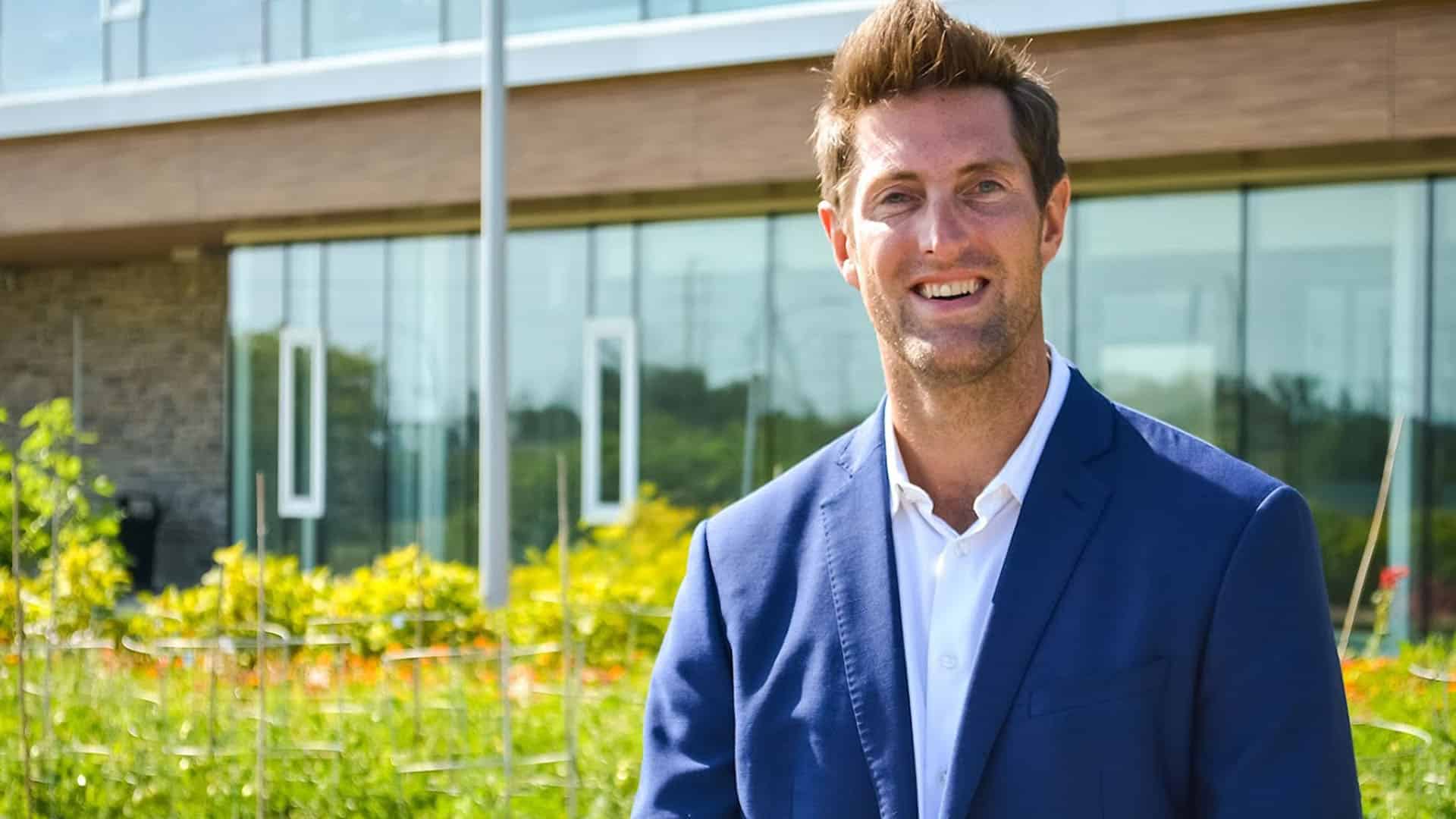Whitby MP announces $540,000 electric vehicle infrastructure project from Oshawa to bring 42 charge stations to Durham by November
Published April 6, 2022 at 2:38 pm

Durham Region is getting electrified this year through a newly announced electric vehicle (EV) infrastructure program funded by the federal and regional governments and Trent University.
The program, announced April 6 by Whitby MP Ryan Turnbull, aims to build 42 electric vehicle charging stations across the Region by November 2022.
The federal government has put up just about $201,500 into the project as part of their Zero-Emission Vehicle (ZEV) Infrastructure Program. This program launched in 2019 with the five-year goal of making electric and hydrogen charging stations more accessible for Canadians.
The $280 million program ends in 2024, by which time the government hopes to install numerous chargers across the country.
As transportation accounts for around 25 per cent of Canada’s greenhouse gas emissions, the Government of Canada considers the transition to ZEV of paramount importance. “Electrification of Canada’s light-duty vehicles as well as a shift to cleaner fuels are key to the decarbonisation of our transportation sector,” reads a project summary.
Almost half of that 25 per cent caused by the transportation sector comes from civilian vehicles like light-duty cars and passenger trucks. Canada’s goal is to ensure all of these vehicles sold in the country are zero emission by 2035. The government accelerated its previous goal of 2040 in June last year.
Canada has set 2050 as the target year for the nation to be completely carbon neutral. On March 29, Prime Minister Justin Trudeau and Environment Minister Steven Guilbeault announced a new climate change plan to nearly cut emissions in half over the next eight years in yet another acceleration.
The feds are pouring $9.1 billion into their 2030 Emissions Reduction Plan to curb emissions across all sectors, such as oil and gas (which accounts for 26 per cent of Canada’s emissions), investment in carbon capture technology, and funding farms to retrofit their operations with green resources among many other initiatives.
The ZEV program forms a significant part of these goals, as access to charging infrastructure has long hampered the adoption of electric vehicles. In pursuit of the goal, 25,000 new chargers will be installed coast to coast.
Canada has invested $3.6 billion since 2015 in EV charging stations. Results can be seen in Durham already, with several stations at the Oshawa Centre for example.
The announcement today committed to a significant expansion of EV infrastructure in Durham. The Region, Clarington, Scugog, Whitby and Trent University have pitched in $340,237 all together, bringing the total investment to $541,736.
Buying an electric car will also net residents a $5,000 tax rebate to encourage the switch and allow Durham’s drivers to benefit from the new infrastructure. This rebate has been used by 130,000 Canadian citizens and businesses do far.
“Investing in more EV chargers, like the ones announced today in Durham, will put more Canadians in the driver’s seat on the road to a net-zero future and help achieve our climate goals,” said Jonathan Wilkinson, Minister of Natural Resources.
Turnbull, who made the announcement at Trent University on behalf of Wilkinson, shared the minister’s optimism.
“I’m happy to announce the second major investment in EV charging infrastructure in Durham Region, which will create 42 more chargers this year,” Turnbull said, “We are making investments that help the residents of Whitby and all Canadians contribute meaningfully to our fight against climate change.”
insauga's Editorial Standards and Policies advertising





